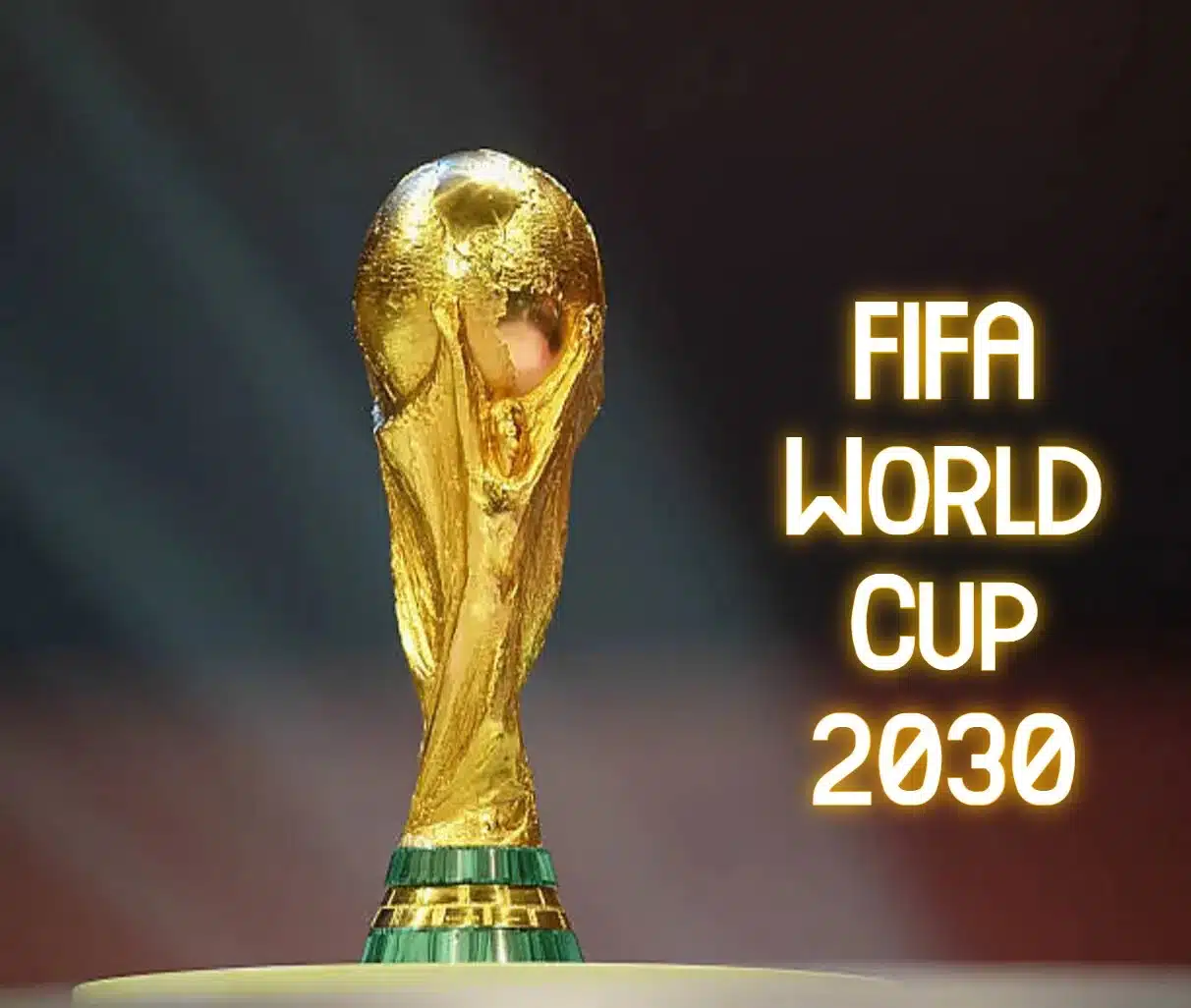
Following the expected script, FIFA officialized Wednesday the concession of the headquarters of the World Cup-2030 to the trio Spain-Portugal-Morocco, with three games in South America, and that of the 2034 edition to Saudi Arabia.
The doubts generated by environmental or human rights issues have not altered the plans of the International Football Federation, which brought together its 211 member federations by videoconference to make this double designation a reality by acclamation.
Also Read: Real Madrid Wins and Breathe in the Champions League, but Crosses the Fingers for Mbappe
In both cases, they were the only candidates for their respective years, so the concession had been an open secret for months.
The Norwegian Football Federation (NFF), very critical of the award of the World Cup 2022 to Qatar, explained in a statement its refusal to give its approval to a process – defective and incompatible – with the principles of responsibility, transparency, and objectivity – demanded by FIFA.
In 2030, the Centenary Monium will join six countries, a unique format in the history of the tournament, born in 1930 in Montevideo.
Uruguay, Argentina, and Paraguay will have three matches of the event, one each, as a reminder of those 100 years of the competition’s life.
The World Cup returns home, celebrating the president of the South American Confederation (Conmebol), Alejandro Dominguez.
Those parties in South America will be June 8-9, 2030. The six teams concerned and their fans will then have to cross the Atlantic in Spain, Portugal and Morocco the other 101 matches will be played, from 13 June to 21 July.
With 11 of the 20 stadiums proposed, Spain should be the head office and host the World Cup for the second time in its history, after 1982.
Morocco, in the past five unsuccessful attempts to host this tournament, will become the second African country to host world champions after South Africa in 2010.
Spain and Morocco are fighting to be the scene of the opening match and the final, proposing respectively the Santiago Bernabeu of Madrid or the Camp Nou of Barcelona on the one hand, and on the other the future Hassan II stadium, between Casablanca and Rabat.
This Moroccan enclosure aspires to be the largest stadium in the world, with a capacity for 115,000 spectators.
Portugal contributes to the project the 2 main stadiums of Lisbon – those of Benfica and Sporting – as well as Porto. The Portuguese aspire mainly to host one of the semifinals.
“A dream come true. Portugal will receive the 2030 World Cup which fills us with pride.” Wrote Cristiano Ronaldo on social media.
Invoking the principle of geographical rotation, FIFA once limited the headquarters of 2034 to the Asian and Oceania confederations.
Saudi Arabia, the country that has made a hole in recent years on the sports map by beat-stage, found itself the only candidate months ago after the resignations of Australia and Indonesia, and the cooling of China’s football ambitions.
The ultra-conservative kingdom, which has bet on a strategy of economic diversification and improvement of its image, has only for now two of the fourteen stadiums of more than 40,000 places that are required.
Beyond the logistical challenge, the high temperatures of the Saudi summer could force the usual dates of the tournament to be moved, as was already the case in 2022 with Qatar. The Ramadan, then scheduled in December, will also have to be managed in the case of 2034.
The tricontinental formula of 2030 was already received last year with doubts about its environmental impact and the added costs to fans, but it is mainly the election of Saudi Arabia that concentrates criticism and fears.
“Put lives in danger and reveal the emptiness of FIFA’s human rights commitments,” warned NGOs – including Amnesty International or Human Rights Watch – and representatives of amateur associations in a joint communique.
Today, the evidence is not lacking exploited migrant workers and victims of racism, militants sentenced to dozens of years in prison for peacefully demonstrating, LGBTQIA women and people – confronted with legalized discrimination, or also inhabitants forcibly expelled to make room for state projects, the text listed.
FIFA President Gianni Infantino alluded to the issue of Saudi Arabia in his final address.
“We are of course very aware of criticism and fears,” he said, before ensuring that a World Cup is a unique catalyst – that can have a positive impact on human rights.
